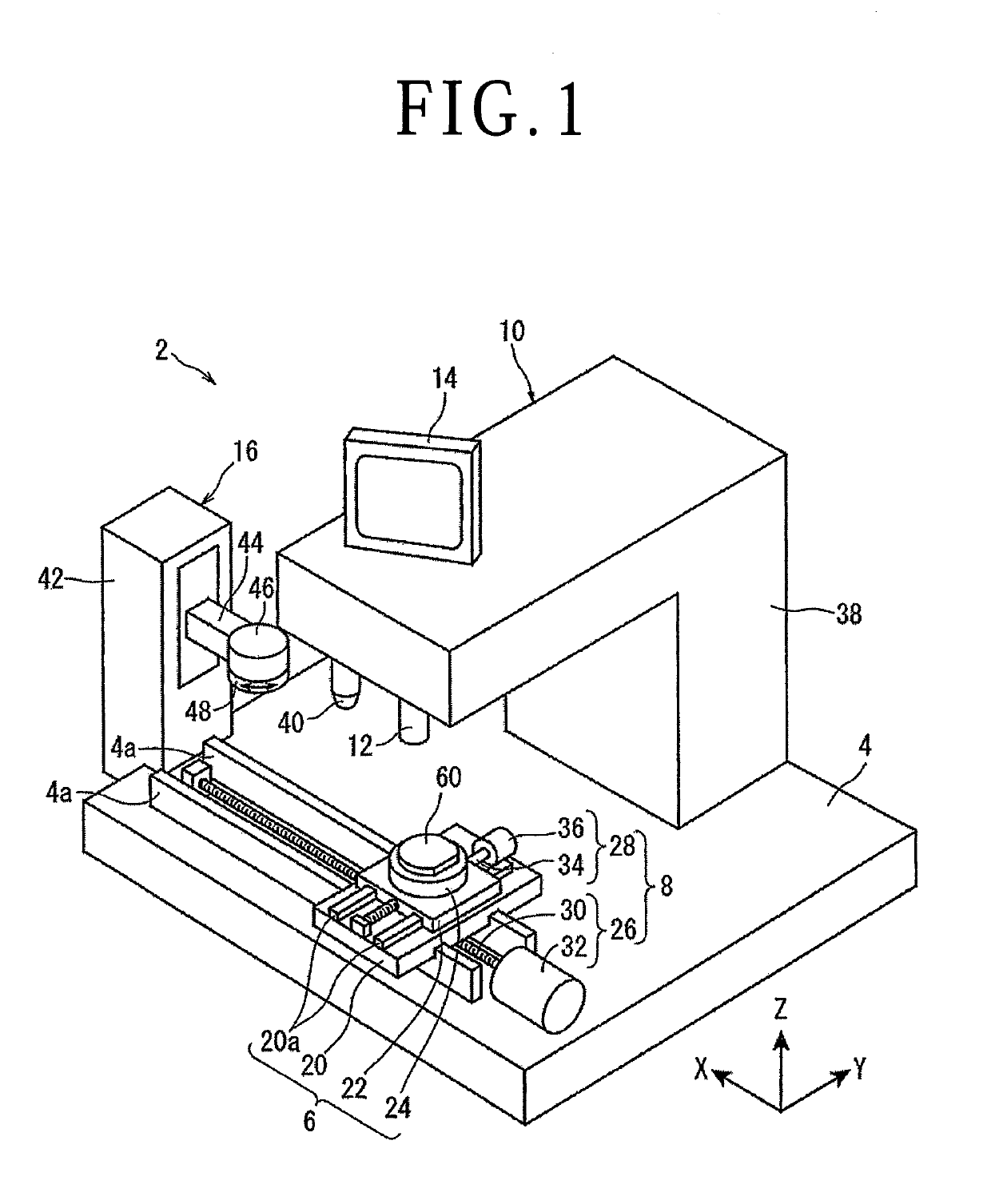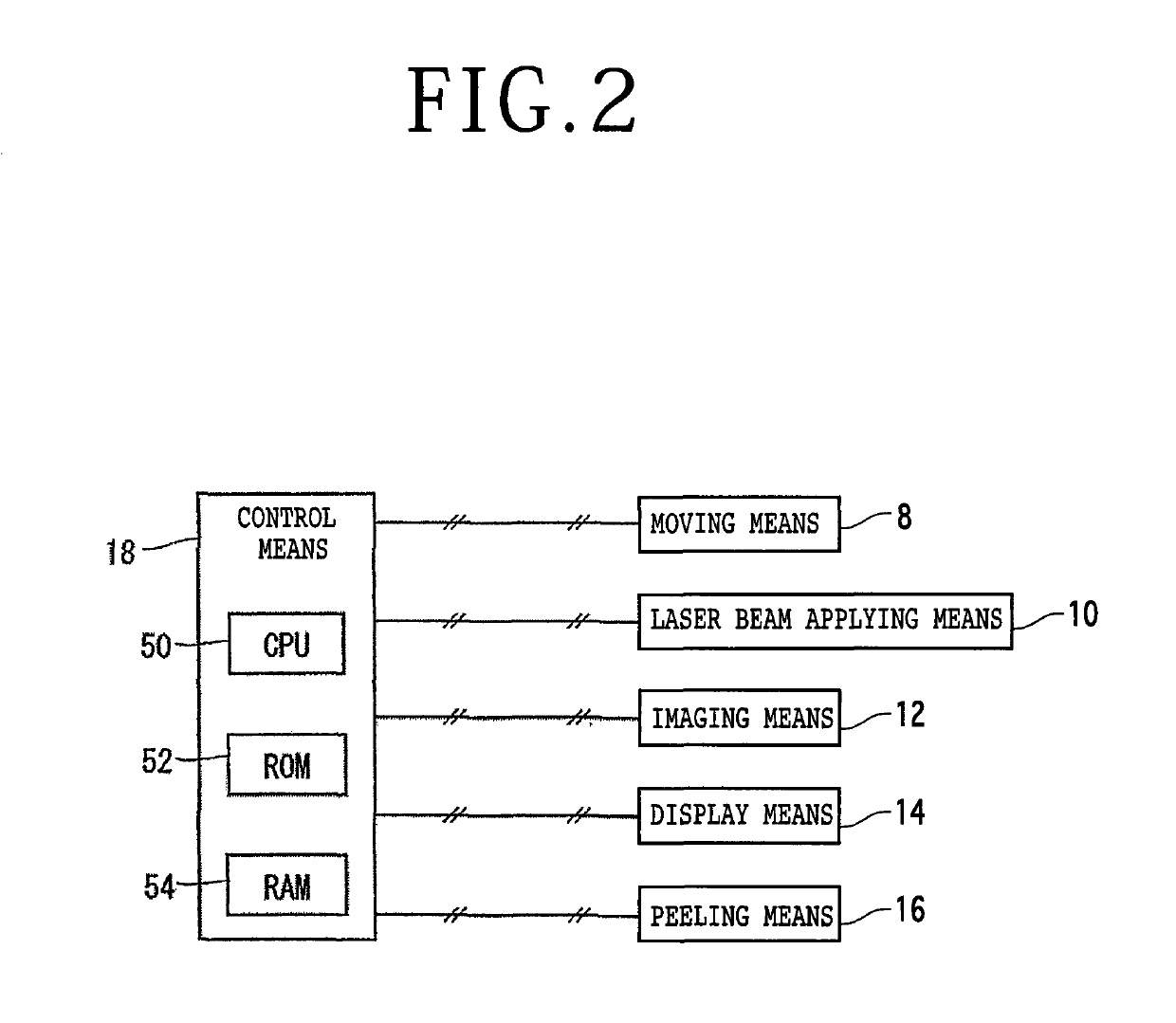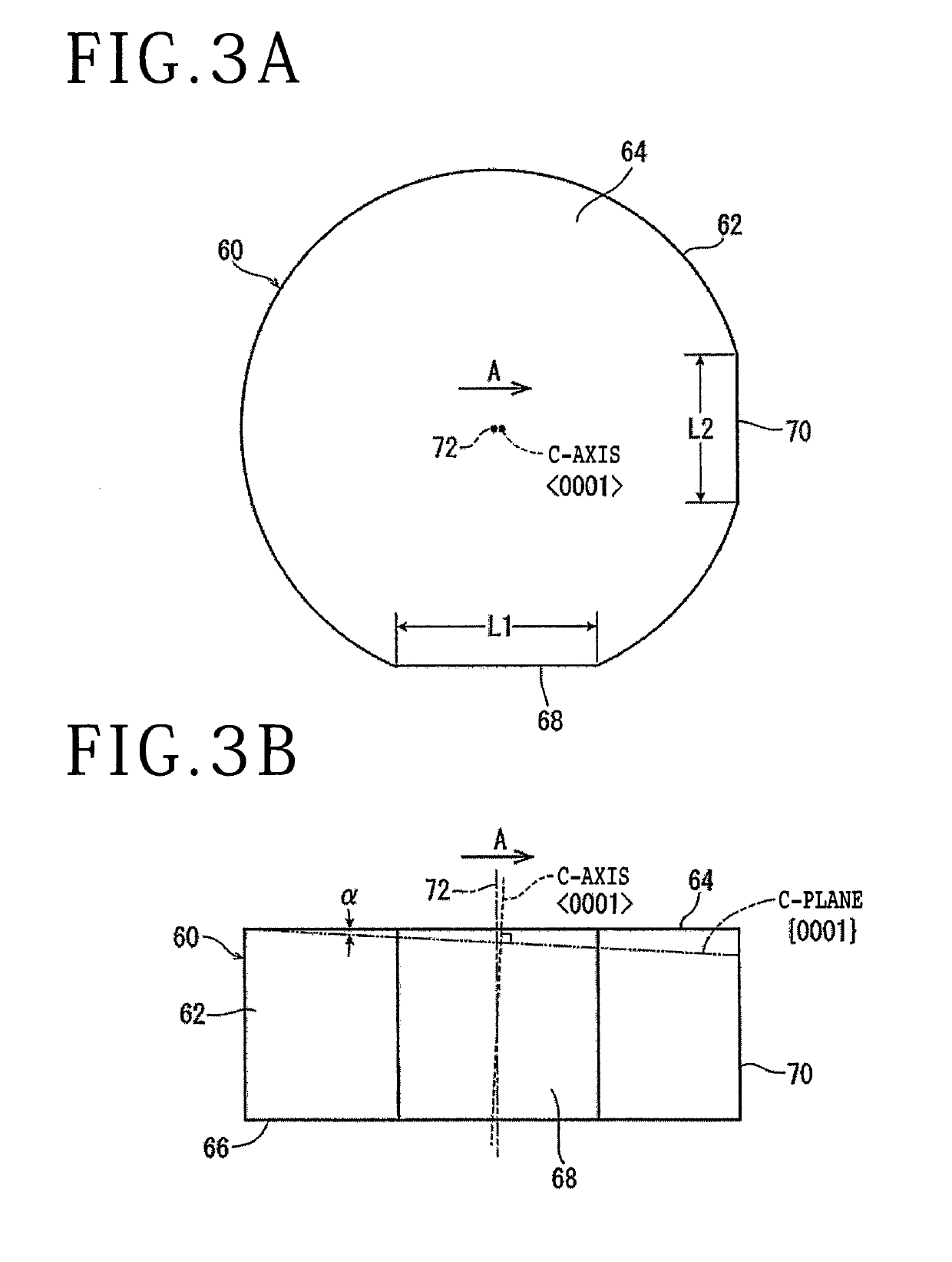Wafer producing method and processing feed direction detecting method
a technology of detecting method and producing method, which is applied in the direction of manufacturing tools, crystal growth process, after-treatment details, etc., can solve the problems of high hardness of single crystal sic ingots, poor productivity of wafer production, and obstacles to the efficient generation of wafers. achieve the effect of improving productivity
- Summary
- Abstract
- Description
- Claims
- Application Information
AI Technical Summary
Benefits of technology
Problems solved by technology
Method used
Image
Examples
Embodiment Construction
[0024]A wafer producing method and a processing feed direction detecting method according to a preferred embodiment of the present invention will be described below with reference to the drawings. First, a laser processing apparatus 2 shown in FIGS. 1 and 2 and a hexagonal single-crystal SiC ingot 60 shown in FIGS. 3A and 3B, which are to be used in the methods, will be described below. As shown in FIG. 1, a laser processing apparatus 2 has a base table 4, holding means 6 for holding a workpiece, moving means 8 for moving the holding means 6, laser beam applying means 10, imaging means 12, display means 14, peeling means 16, and control means 18.
[0025]The holding means 6 includes a rectangular X-direction movable plate 20 mounted on the base table 4 for movement in X directions, a rectangular Y-direction movable plate 22 mounted on the X-direction movable plate 20 for movement in Y directions, and a cylindrical chuck table 24 rotatably mounted on an upper surface of the Y-direction ...
PUM
| Property | Measurement | Unit |
|---|---|---|
| length | aaaaa | aaaaa |
| length Lc | aaaaa | aaaaa |
| length Lc | aaaaa | aaaaa |
Abstract
Description
Claims
Application Information
 Login to View More
Login to View More - R&D
- Intellectual Property
- Life Sciences
- Materials
- Tech Scout
- Unparalleled Data Quality
- Higher Quality Content
- 60% Fewer Hallucinations
Browse by: Latest US Patents, China's latest patents, Technical Efficacy Thesaurus, Application Domain, Technology Topic, Popular Technical Reports.
© 2025 PatSnap. All rights reserved.Legal|Privacy policy|Modern Slavery Act Transparency Statement|Sitemap|About US| Contact US: help@patsnap.com



